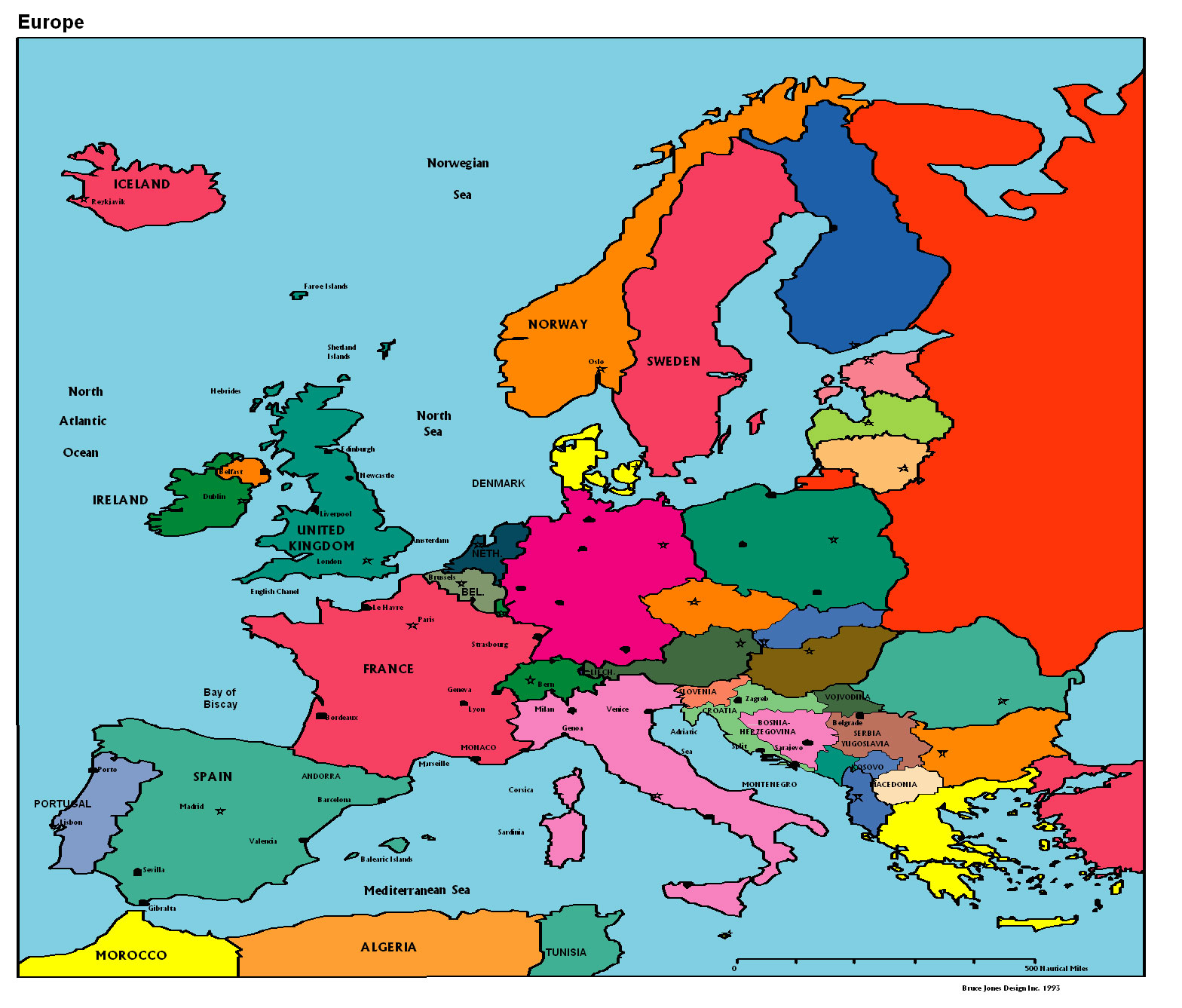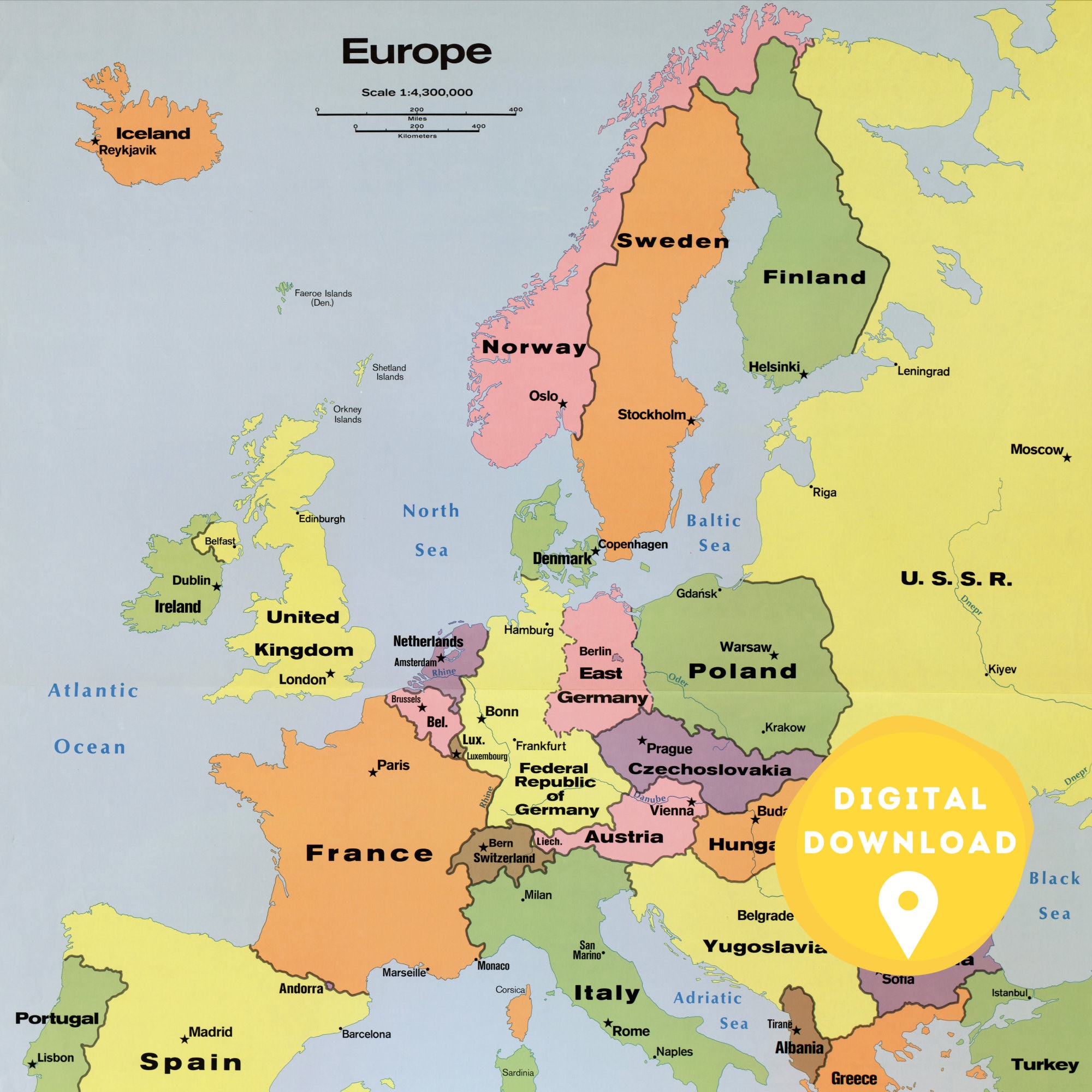Eurome: Unraveling The Mystery Of A Grand Strategy Game And Digital Platform
In the vast landscape of digital entertainment and online communities, certain names resonate with a distinct echo, often carrying multiple meanings depending on the context. One such intriguing term is "eurome." For many, it immediately conjures images of ancient empires, strategic brilliance, and the intricate dance of diplomacy and warfare. This is, of course, a direct reference to Europa Universalis: Rome, a grand strategy game that carved out its niche in the hearts of history enthusiasts and strategy gamers alike. Yet, the term "eurome" also appears in a different, more contemporary light, often associated with discussions around digital content, user-generated media, and the challenges of online platform management. This article aims to demystify "eurome" by exploring both its prominent interpretations, delving into the enduring legacy of the game and the complex realities of modern digital platforms.
Whether you're a seasoned veteran of Paradox Interactive's historical simulations or someone navigating the intricate world of online content sharing, understanding the nuances behind the term "eurome" is crucial. We will journey through the strategic depths of the game that captured the imagination of countless players, examining its unique features and the community that grew around it. Simultaneously, we will address the challenges and discussions surrounding the digital platform often referred to by a similar-sounding name, shedding light on issues ranging from copyright claims and content moderation to user experience and technical stability. By exploring these dual facets, we hope to provide a comprehensive understanding of "eurome" in its various forms, offering insights into both historical gaming and the evolving landscape of online interaction.
Table of Contents
- The Enduring Legacy of EU Rome: A Deep Dive into Paradox's Ancient World
- Navigating the Challenges: Common Player Experiences with EU Rome
- The EU Rome Community: Building Connections in the Ancient World
- Beyond the Game: Exploring the "Erome" Phenomenon
- Erome's Technical Hurdles: Copyright, Spam Filters, and User Frustrations
- User Empowerment on Erome: Strategies for Content Management and Access
- The Digital Divide: Mac Compatibility and Game Accessibility
- The Future of Ancient Strategy Games and Digital Content Platforms
The Enduring Legacy of EU Rome: A Deep Dive into Paradox's Ancient World
When discussions turn to grand strategy games set in antiquity, "EU Rome" (often colloquially referred to as "eurome" by its dedicated fanbase) inevitably enters the conversation. Developed by Paradox Interactive, renowned for its complex and historically rich strategy titles, Europa Universalis: Rome launched players into the tumultuous era of the Roman Republic and its surrounding civilizations. Unlike many historical games that focus solely on the rise of Rome, EU Rome offered a broader canvas, allowing players to lead any of the numerous factions present during that period, from the burgeoning Roman state to the Hellenistic kingdoms, barbarian tribes, and Carthaginian empire. This expansive scope, combined with Paradox's signature deep gameplay mechanics, cemented its place as a unique entry in the genre.
From Genesis to Grand Strategy: Understanding EU Rome's Origins
Released in 2008, EU Rome emerged from the same lineage as the highly successful Europa Universalis series, adapting its core mechanics to the ancient world. Players were tasked with managing their chosen nation's economy, military, diplomacy, and internal politics across a vast map. The game's intricate systems meant that success wasn't merely about conquering territory but about maintaining stability, managing populations with diverse cultures and religions, and navigating the ever-shifting alliances and rivalries of the era. For those who started playing "eurome" roughly a year after its release, or even years later, the learning curve was steep, but the rewards of mastering its complexities were immense. It offered a different flavor compared to other strategy games of the time, emphasizing historical plausibility and player agency over linear narratives.
Gameplay Mechanics and What Made EU Rome Unique
What truly set EU Rome apart was its detailed simulation of ancient society. Characters played a significant role, with their loyalty, skills, and ambitions directly impacting national affairs. Players had to contend with civil wars, political factions, and the rise and fall of prominent families. The game also featured a sophisticated trade system, detailed military units, and a research tree that reflected technological advancements of the period. While some players might have found the initial manual to be "like 10 pages no with almost no explanations!" – a common complaint for Paradox titles known for their depth – the game's emergent storytelling and replayability kept players engaged. It wasn't just about painting the map; it was about crafting a historical narrative through your decisions, making "eurome" a truly immersive experience for those who embraced its complexity.
Navigating the Challenges: Common Player Experiences with EU Rome
Despite its unique appeal, EU Rome, like many grand strategy games, presented its share of challenges to players. The steep learning curve was a recurring theme. New players, upon receiving the original "eurome" by mail, often found the included manual to be woefully inadequate, offering "almost no explanations." This necessitated a reliance on community guides, online forums, and trial-and-error to grasp the game's intricate mechanics. This initial hurdle could be daunting, but it also fostered a strong sense of community among those who persevered.
Furthermore, the game existed in a competitive landscape. Many players, after being "extremely disappointed with Rome 2 Total War even going on a year after its release," sought out alternative ancient strategy games. This often led them to ask, "Is eurome a good game?" The answer, for many, was a resounding yes, especially for those who preferred the deep, character-driven simulation of Paradox titles over the more tactical battles of the Total War series. The game offered a different strategic depth, focusing on internal politics, population management, and long-term geopolitical maneuvering, which resonated with a specific segment of the strategy gaming audience looking for a more immersive and less combat-centric ancient world experience.
The EU Rome Community: Building Connections in the Ancient World
A significant aspect of any niche game's longevity is its community, and "EU Rome" is no exception. Despite its age, a dedicated player base continues to discuss strategies, share insights, and even reminisce about their most memorable campaigns. This community spirit is vital, especially for a game that demands significant investment from its players. When someone asks, "Interested in this as well," it's a testament to the game's lasting appeal and the desire of new and old players alike to connect over their shared passion for ancient grand strategy.
The #eurome IRC Channel: A Hub for Enthusiasts
In the early days of online gaming communities, IRC (Internet Relay Chat) channels served as vital hubs for real-time discussion and camaraderie. It's no surprise then that a dedicated "eurome" IRC channel (#eurome) was set up on the QuakeNet server. This channel served as a gathering place "for everybody and anybody who wants to come along and discuss about the game." Such platforms were crucial for players to ask for help, share tips, and simply chat about their experiences. For a game with a steep learning curve and complex mechanics, having a direct line to experienced players was invaluable, fostering a supportive environment where newcomers could get "any help" they needed, even after extensive personal research. This kind of direct interaction helped solidify the community around EU Rome, ensuring its legacy extended beyond mere gameplay.
Beyond the Game: Exploring the "Erome" Phenomenon
While "eurome" primarily refers to the grand strategy game, the provided data also introduces another entity: "Erome." This distinct term appears to denote a digital content platform, characterized by user uploads, private albums, and discussions around copyright and content moderation. It's crucial to distinguish between "EU Rome" (the game) and "Erome" (the platform), as they operate in entirely different spheres, despite the phonetic similarity. The challenges faced by users and administrators on "Erome" highlight common issues prevalent across many user-generated content platforms in the digital age.
Users on Erome encounter issues ranging from content removal due to "copyright claims" to difficulties in downloading content and navigating what they perceive as "spam." The platform's dynamic nature means that "periods of strong influence" can make servers "more unstable," especially when dealing with "heavy files that take time" to process. These are not unique problems to Erome but are indicative of the broader technical and legal complexities involved in managing large-scale digital content repositories. Understanding these challenges provides insight into the intricate balance platforms must strike between user freedom, content integrity, and legal compliance.
Erome's Technical Hurdles: Copyright, Spam Filters, and User Frustrations
The "Erome" platform, as described by user experiences, faces a range of technical and administrative challenges that significantly impact its users. A recurring complaint revolves around content removal, specifically "private albums, that had always been private removed for copyright claims." This suggests an automated or semi-automated system for copyright enforcement, which, while necessary for legal compliance, can often lead to frustration when content is removed quickly, sometimes even "for less than 5" minutes after upload. Users often feel targeted, asking, "Does someone at erome have it in for me?" when their long-standing content suddenly disappears. This highlights the delicate balance between protecting intellectual property rights and ensuring a positive user experience, especially when automated systems are involved.
Another significant hurdle is the issue of content visibility and access. Users report difficulty "downloading from erome," even after extensive research, indicating potential technical complexities or intentional restrictions. Furthermore, the platform struggles with "spam," making it difficult for users to find "quality accounts to follow." This is a common problem for any platform that allows open content submission, requiring robust moderation and filtering mechanisms. The administrators acknowledge these issues, stating, "I know about it and we try to do our best," recognizing that "periods of strong influence" can destabilize servers, particularly with "heavy files" that strain resources. These challenges underscore the continuous effort required to maintain a functional and user-friendly digital content platform.
The Battle Against Automated Systems: Reddit's Spam Filter and Erome Links
The challenges faced by Erome extend beyond its own internal systems, impacting how its content is shared and discussed on other platforms. A notable issue is that "Erome links are being automatically removed by Reddit's spam filter." This automatic filtering, often implemented by large platforms like Reddit to combat unwanted content, can inadvertently block legitimate discussions or sharing. Users express confusion, stating, "I don't understand why" these links are flagged, and wish to "know the admins'" reasoning or how "automoderator rules can fix this." This scenario illustrates the broader struggle content platforms face with cross-platform moderation and the often opaque nature of automated spam detection. It highlights the need for clear communication between platforms and users, as well as the continuous refinement of algorithmic filters to avoid overreach while still effectively combating spam and malicious content.
User Empowerment on Erome: Strategies for Content Management and Access
Despite the technical and moderation challenges, users on platforms like Erome often seek ways to empower themselves and navigate the system effectively. For those struggling with "downloading from erome," the community often becomes a vital resource, with users seeking "any help" they can get from more experienced members. This collective problem-solving is a hallmark of online communities, where shared frustrations often lead to collaborative solutions or workarounds. Users also grapple with the problem of "finding quality accounts to follow is difficult in all the spam," which pushes them to develop their own strategies for content curation, such as relying on word-of-mouth recommendations or diligently sifting through feeds.
The desire to understand platform mechanics, such as why "Erome links are being automatically removed by Reddit's spam filter," also drives users to engage with administrators or seek explanations from the broader community. While direct access to admin rules might be limited, the ongoing dialogue about these issues contributes to a collective understanding of the platform's operational nuances. This proactive approach by users, whether seeking technical assistance or advocating for clearer moderation policies, is crucial for the evolution and improvement of any user-generated content platform. It underscores the symbiotic relationship between platform providers and their user base, where feedback and adaptation are key to long-term viability.
The Digital Divide: Mac Compatibility and Game Accessibility
Beyond the specific issues of "eurome" (the game) and "Erome" (the platform), the provided data also touches upon a broader, persistent challenge in the digital world: accessibility across different operating systems. The comment, "I have a Mac so the VV has not come out yet for me," highlights the historical and ongoing struggle for Mac users to access certain PC-centric games or software. While the specific "VV" mentioned is unclear, it likely refers to a game expansion, a specific version, or a tool that was not immediately available or compatible with macOS. This issue is a common pain point for gamers and software users who prefer Apple's ecosystem, often leading to delays, workarounds, or outright inability to play certain titles or use specific applications.
This digital divide extends beyond gaming, impacting various software and content creation tools. Developers often prioritize Windows due to its larger market share, leaving Mac users waiting for ports, emulators, or simply missing out. While the situation has improved significantly over the years with more cross-platform development, the anecdote from a user just getting the "original eurome by mail" underscores a past reality where platform exclusivity was a much more prominent barrier. This aspect of digital accessibility remains a critical consideration for developers and platform providers aiming for a truly inclusive user base.
The Future of Ancient Strategy Games and Digital Content Platforms
The journey through "eurome" in its dual interpretations reveals much about the evolving digital landscape. For ancient strategy games like EU Rome, the future lies in continued community engagement, modding, and perhaps even spiritual successors that capture the same depth and historical immersion. The enduring question, "Is eurome a good game?" continues to be answered affirmatively by a dedicated fanbase, proving that quality gameplay can transcend graphical fidelity and age. The desire for a "different ancient strategy game" after disappointment with newer titles suggests a market for niche, historically rich experiences that prioritize strategic depth over mass appeal. The persistence of an IRC channel for "eurome" also reminds us that while new communication platforms emerge, traditional ones can still serve as vital community hubs.
For digital content platforms like Erome, the path forward involves continuously addressing the core challenges of content moderation, copyright enforcement, and user experience. The struggle with "copyright claims," "spam filters," and server stability is universal for platforms dealing with user-generated content. The need for clear "automoderator rules" and transparent communication from "admins" is paramount to building user trust and fostering a healthy online environment. As the digital world becomes increasingly saturated with content, the ability to manage it effectively, ensure accessibility, and protect both creators and consumers will determine the long-term success and trustworthiness of any platform. The experiences shared by users of both "eurome" and "Erome" offer valuable insights into the complexities and enduring appeal of our digital lives.
Conclusion
From the strategic battlefields of Europa Universalis: Rome to the complex digital ecosystem of online content sharing, the term "eurome" serves as a fascinating lens through which to view the multifaceted nature of our digital interactions. We've explored how "EU Rome" carved out its niche as a beloved grand strategy game, appreciated for its historical depth and intricate mechanics, even amidst challenges like opaque manuals and the rise of competitors. Its community, thriving on shared passion and mutual support, exemplifies the lasting power of niche gaming.
Simultaneously, we delved into the world of "Erome," a distinct digital content platform grappling with the universal issues of copyright enforcement, content moderation, and user experience. The struggles with automated systems, spam filters, and server stability highlight the continuous effort required to maintain a functional and fair online space. Ultimately, whether discussing the nuances of ancient warfare or the complexities of digital content management, the experiences surrounding "eurome" in its various forms underscore the dynamic, challenging, and often rewarding nature of engaging with technology and online communities. We encourage you to share your own experiences with either "EU Rome" or digital content platforms in the comments below. What are your thoughts on the challenges of online content moderation, or your favorite memories from a grand strategy campaign? Add your thoughts and get the conversation going!

Explore The Enchanting World Of Eurome: Uncover Hidden Gems And

Men Vi Sinh EuroMe – HeBeCare

Pin By Matheus Moscardo On Geografia Map, Europe Map, Flags, 44% OFF